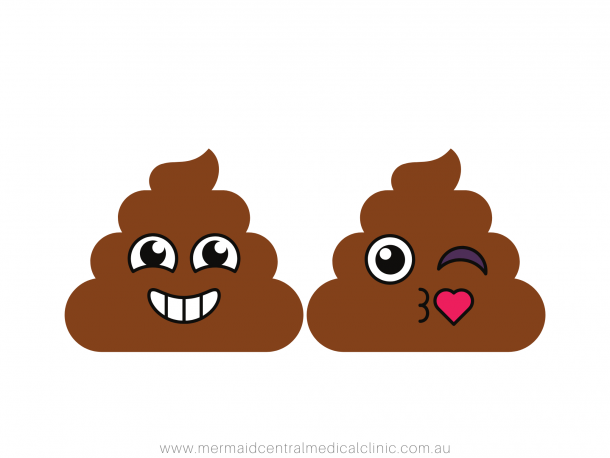BREASTFEEDING: EXERCISE IN FERTILITY
Where have I been?
Sorry I’ve been away from the blog for awhile. We had a baby boy and I’ve been busy changing nappies and not sleeping. Our massive thanks goes to Dr Michael Flynn and Dr Scott Blundell for their sensational care and Pindara Hospital was fabulous as always.
Anyways it’s an understatement that babyhood has been on my mind lately, in particular the great discussion over a simple biological act- breastfeeding.
Breastfeeding
If Coca-Cola Amatil had invented breast milk we would all be drinking it. It has short term and long term benefits both for child and mother. The average newborn baby requires 110kcal/kg/day and breast milk has 0.67 kcal/ml.
Colostrum
The first amazing fact about breastfeeding is that the composition of human breast milk will change according to the infants needs; thus it is specifically produced by mums for their infant. Colostrum is the first milk produced. The primary role of colostrum is ti assist the infant in fighting infections during the first few days after birth. Colostrum has very high concentrations of immunoglobulins which are passed from the mother to the infant through the milk. These immunoglobulins provide the infant with protection from many infections diseases that the mother has been exposed to in the past and developed her own immunity to. An important things for young humans when the first enter this world. Colostrum also has high concentrations of whey protein and very low casein levels making it the most suitable milk to be easily digested by the immature infant gut. Finally, colostrum has high sugar levels. These extra sugars are necessary for the nourishment of microbes in the infants gut and allow the development of a normal human microbiome in the gut.
Protein
Throughout feeding the protein composition fluctuates and then stabilises at about 7 months postpartum. It adjusts according to the babies growth and development needs. Overall protein levels remain “lower” when compared to cows milk and cows milk based formulas and this is seen as concerning by some people. This composition is however more easily digestible than formula preparations and perfectly formulated to nourish a developing baby human.
Breast milk contains around 400 different proteins- some of which assist in absorption of essential nutrients. They also provide nutrition. Added to this proteins are the building blocks of immunoglobulins which continue to be expressed in the mothers milk in order to assist the babies developing immune system. If mum and bub get the same illness, mum’s antibodies, produced from a mature and efficient immune system, will be passed on to baby resulting in bub experiencing no or a milder form of illness.
Finally, there are certain proteins in breast milk that can “trick” gastrointestinal pathogens into attaching to them rather than to the infants stomach lining. This way the pathogens are then passed out in the poo rather then the baby coming down with a gastrointestinal illness!!
Lipids
Lipids- or fats- are the most important energy source in breast milk and contribute about 50% of the total energy provided in breast milk. Throughout a feed there is a gradual increase in the concentration of fat in the milk that the baby receives. This difference is often referred to as “fore milk’ and “hind milk”, the former being to hydrate the infant and the latter to provide nutritional energy. Mums will often notice differences in how their babies feed depending on if their bub is thirsty or hungry and they may feed for a shorter or longer time respectively. Breast milk contains over 200 different fatty acids. Amazingly some of these have been shown to act like an antibiotic and can kill certain pathogens.
Carbohydrate
Breast milk also contains a large variety of complex carbohydrates. Lactose is present in the highest concentration in human milk when compared to other mammals. Evolutionarily this is thought to be due to the high energy requirements of the developing human brain.
Additional sugars are also required to nourish bacterial that live in the human digestive system and thus breast milk functions not only as nutrition for the infant but also as a type of probiotic. This occurs to the point where certain carbohydrates will help beneficial bacteria to grow in preference to other pathogenic bacteria. As a result breast fed babies and children can avoid episodes of diarrhoea and respiratory tract infections.
Vitamin Content
Vitamins are essential for normal human development. Breast milk usually contains all the vitamins required for a growing infant. However it is important to note that vitamin content of breast milk is dependent on mum’s nutritional status and therefore there are some situations to be aware of.
In certain situations, for example if mum is a vegan vegetarian, breast milk may be deficient in vitamin B12. In this case the mother would need to ensure an adequate intake of B12 in her own diet in order to supply bub with what is required through her milk. This can be achieved through eating lots of green leafy vegetables, fortified cereals, milk alternatives and meat replacements.
Breast milk is also low in Vitamin K. Most newborns receive either an injection or oral dose of vitamin k at or shortly after birth in order to ensure an adequate supply of this vitamin.
Finally, Vitamin D can also be on the lower side in some women and therefore may be low in breast milk also. This is simple to supplement in mum’s diet and in any situation where mum may be concerns about infant nutrition it is always important to see her GP. More often than not reassurance is all that is required but in certain situations a simple blood test and some supplements can quickly identify and treat any vitamin deficiencies that may occur.
How good is it?
So we can see that the composition of breast milk is very beneficial and specifically tailored to the growth and development of a baby human. As someone once told me “cows milk is good for baby cows”, and it’s pretty much the same for us humans.
The components of breast milk provide nutrition for the infant and also enhance the growth of the gastrointestinal tract. Breast milk can help in avoiding bacterial infection of all kinds and has also been shown to decrease risk of infectious forms of gastroenteritis, middle ear disease, respiratory diseases and urinary tract infections in the infant. Long term studies have shown a decreased risk of obesity in breast fed children as well as a possible reduction in risk of certain cancers, such as childhood leukaemia. It is also thought to help with rapid development of hearing function, helps in reducing the risk of behavioural problems and decreases the stress of children if undergoing surgical or medical procedures.
Uptodate has a good sentence that sums up baby benefits: “Compared with never
breastfeeding, those infants who breastfed for ≥three months had fewer medical office visits, medications, procedures, and hospitalizations. This amounted to a saving of $331 per single infant in short-term acute medical care costs only. In the managed care setting, full breastfeeding is estimated to reduce by 20 percent the total medical expenses compared with never breastfeeding.”
But what about mum?
Mum also benefits from breastfeeding. It helps with reduction of stress during the post-partum period, enhances weight loss following pregnancy, and may make the return to ovulation longer than without breastfeeding (although this should never be relied on for contraception!). In the long term there are also benefits for mum with breast feeding being associated with a reduction in risk of endometrial, ovarian and breast cancer. It has also been thought to help with prevention of diabetes and cardiovascular disease.
So breastfeeding is definitely important in the life of our babies and our mums!
Are you following us on social media?
Follow us on Facebook
See us on Instagram
* This is not medical advice and should not be taken as such. Please see your doctor if you have any questions or concerns. Call Mermaid Central Medical Clinic on (07) 5575 2444 or visit the website www.mermaidcentralmedicalc







